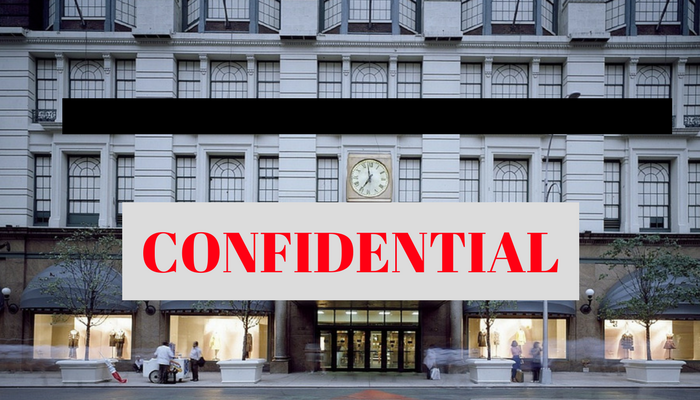In recent years, the National Labor Relations Board has rejected many employer policies as restricting employees’ rights. This has included decisions related to protection of confidential information.
On August 14, 2017, the NLRB ruled in the employer’s (Macy’s) favor on a rule prohibiting disclosure of confidential information about customers obtained from the company’s confidential records. The Labor Board did not review other rules in the employer’s handbook that an administrative law judge had found to violate the National Labor Relations Act.
Macy’s Confidential Information Policy
Macy’s employee “Code of Conduct” included a lengthy “Confidential Information” policy.
In part, the Confidential Information policy provided:
Confidential information about our Company, its business, associates, customers and business partners should be protected. It can be used only to pursue the Company’s business interests or to comply with the Company’s legal or other obligations.
What is confidential information? It could be business or marketing plans, pricing strategies, financial performance before public disclosure, pending negotiations with business partners, information about employees, documents that show social security numbers or credit card numbers–in short, any information, which if known outside the Company could harm the Company or its business partners, customers or employees or allow someone to benefit from having this information before it is publicly known.
The policy goes on to prescribe rules for protecting confidential information, such as marking documents as confidential and shredding them when no longer needed.
Legal Issues
Section 7 of the National Labor Relations Act protects employees’ rights to engage in concerted activity for their mutual aid and protection. This includes the right of employees to collectively appeal to their employer’s customers in a labor dispute.
Employer rules that unreasonably “chill” employees’ exercise of their Section 7 rights are unlawful.
Two of the three NLRB members deciding this case agreed that Macy’s rules regarding confidential customer information did not violate Section 7. One member, former Chairman Mark Pearce, disagreed.
Notably, both Chairman Philip Miscimarra, a Republican, and Member Lauren McFerran, a Democrat, agreed on the majority decision. This marks an unusual alignment in employee rule decisions from the NLRB.
The majority emphasized the reference to social security and credit card numbers. No one contended that employees had a right to disclose that information. However, Member Pearce disagreed with its relevance in determining the lawfulness of the policy as a whole. He instead emphasized the broader reference to “any information, which if known outside the Company could harm the Company or its business partners.”
But the majority countered that the reference social security and credit card numbers along demonstrated the type of information that Macy’s intended to protect by its policy. They further relied on the inclusion of rules for preserving confidential information. In sum, they concluded that because the rule only protects information that is truly “confidential,” it does not unduly chill employees’ rights under Section 7.
Click here for the NLRB’s decision in Macy’s, Inc. 365 NLRB No. 116 (2017).
The Bigger Picture
This decision is important for many employers who maintain confidentiality policies. But it may be more significant in signaling a shift in Labor Board review of employee rules generally.
As previously discussed, the NLRB has recently added a fourth Member, Republican Marvin Kaplan. This brings the Board to a 2-2 split between Republicans and Democrats. And it will soon feature a 3-2 Republican majority for the first time in nearly a decade.
It was somewhat surprising that Democrats McFerran and Pearce split on their interpretation of Macy’s confidential information rule. This perhaps demonstrates how far Member Pearce’s extreme pro-employee views extend.
More important, Chairman Miscimarra’s footnotes in this decision reflect his disagreement with existing precedents on various employee-rule related issues. Although Chairman Miscimarra himself will be leaving the Board later this year, it is fair to assume the incoming Republican members will largely share his views. This will eventually lead to NLRB decisions that are less burdensome for employers.
Stay Tuned for More Labor Board Developments
NLRB decisions affect most private-sector employers in the United States. This includes both union and non-union workplaces. New decisions from a Republican-led Board may change the ways employers can manage their employees.
To ensure that you receive future blog posts on this and other important subjects, sign up for my free newsletter.
